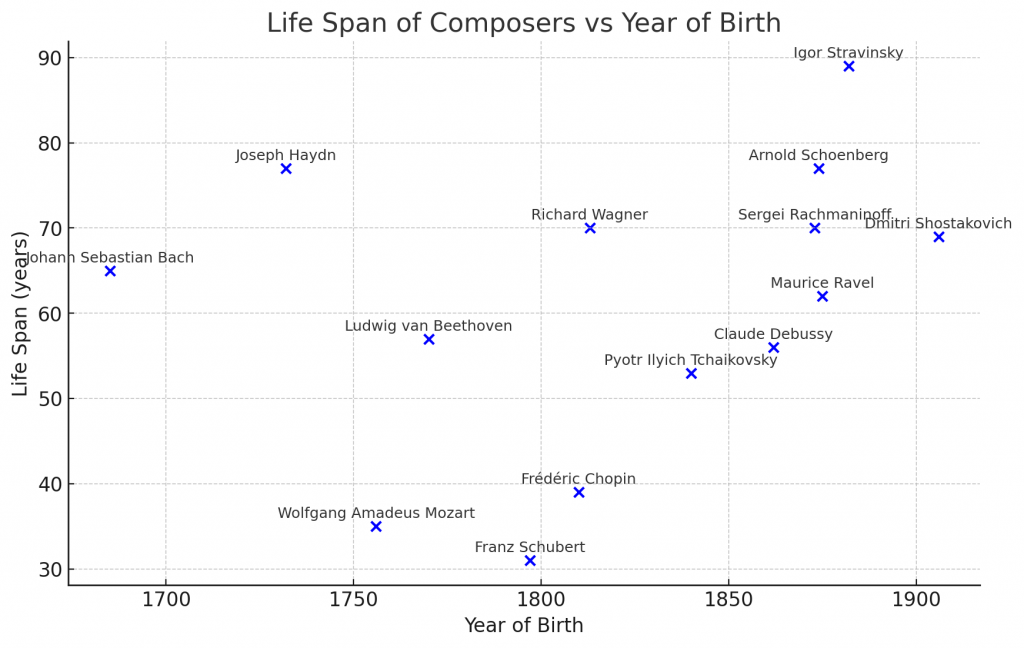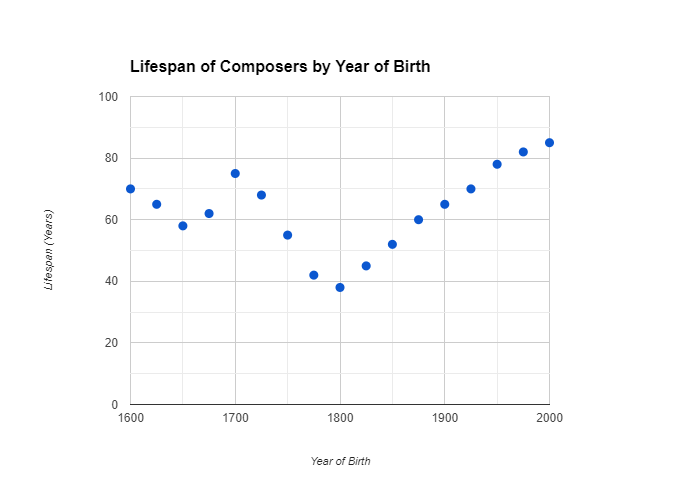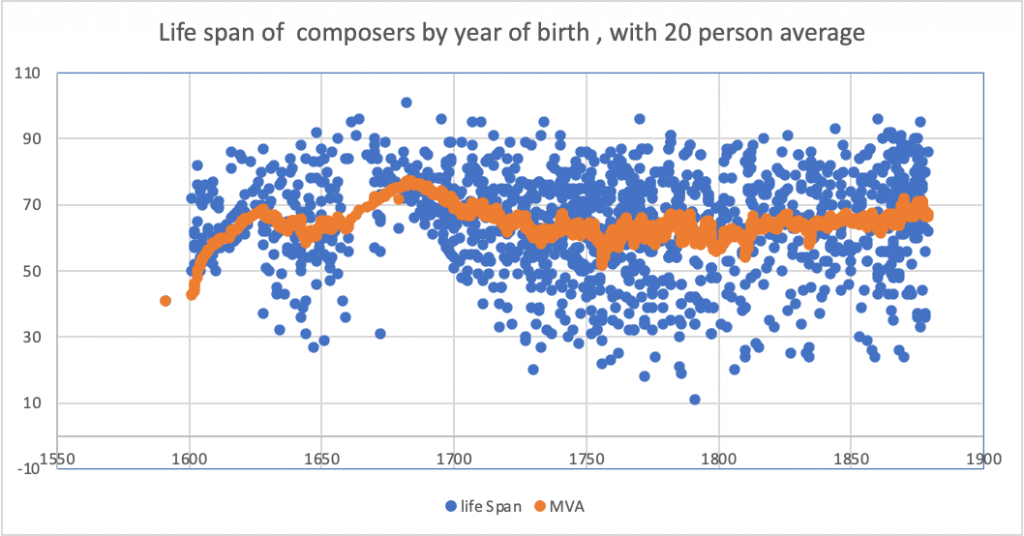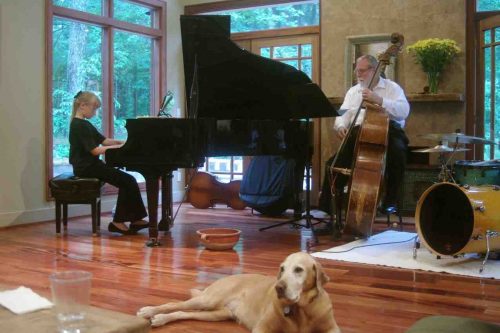As more of medical science relies on data, understanding biases that exists in different data sets becomes of importance.
Consider following data set containing most famous composers of classical and later period:
| Baroque | Classical/Romantic | Russian | ||||||
| Name | Born | Lived Years | Name | Born | Lived Years | Name | Born | Lived Years |
| C Monteverdi | 1567 | 76 | W.A Mozart | 1756 | 35 | P Tchaikovsky | 1840 | 53 |
| A. Corelli | 1653 | 60 | L Beethoven | 1770 | 57 | M. Mussorgsky | 1839 | 42 |
| H. Purcell | 1659 | 36 | F Schubert | 1797 | 31 | A Borodin | 1833 | 54 |
| T Albinoni | 1671 | 80 | F. Chopin | 1810 | 39 | C. Cui | 1835 | 83 |
| A Vivaldi | 1678 | 63 | F Liszt | 1811 | 75 | S Prokofiev | 1891 | 62 |
| G. Telemann | 1681 | 86 | R. Schumann | 1810 | 46 | I Stravinsky | 1881 | 90 |
| J.P. Rameau | 1683 | 81 | F. Mendelssohn | 1805 | 42 | N Rimsky-K | 1844 | 64 |
| J.S. Bach | 1685 | 65 | R Wagner | 1813 | 70 | Scriabin | 1872 | 43 |
| D. Scarlatti | 1685 | 72 | J Brahms | 1833 | 64 | S Rachmaninov | 1873 | 70 |
| G.F. Handel | 1685 | 74 | H Berlioz | 1803 | 66 | Igor Stravinsky | 1882 | 89 |
| Average | 69.30 years | Average | 52.5 | Average | 65 | |||
| Standard Dev | 4.89 | Standard Dev | 5.9 | |||||
What can be noticed that Baroque and Russians composers lived on average decade longer longer than Romantic era composers. Here are some graphical representations.

Very Hard Question: How would you explain that difference in a simplest way?

In the graph above we show the same thing with more composers. Are you ready to guess why this seems to be the case?
It is hard to generalize about quality of life and even life expectancy given somewhat limited and spurious data. However, one is tempted to make a following observations:
- Role of music evolved with society.
- Originally music and arts were supported by nobility and the courts.
- Life of nobility was very different than life of a commoner. Life expectancy was close to double.
- During industrial revolution the overall life expectancy increased, but the difference between the life expectancy of the classes (at birth) was reduced. Also many people moved to the cities where living conditions were poor.
- The above factor caused the lifespan of composers of the Classical and Romantic era to be generally shorter than those of the Baroque era, especially in Germany and France where the class based society gradually vanished (over next two centuries)
- Given that Russia and Italy were behind Western Europe in terms of social changes and equilibration of industrial era this could be a common factor in explaining differences in lifespan of the composers.
- Another simple factor is that famous Russian composers were born later than famous European composers and life expectancy between 1750 and 1880 has increased.
- When looking at old data one has to worry about representation and survivorship bias- generally musicians who are known today are known by the quantity of their work (somewhat proportional to their lifespan)- not necessarily by the quality.
Read More About Life Expectancy
I

Nearly two thousands data points from Wikipedia show that it is hard to reach a conclusion on average life span of musicians in different periods. One of the observation is that most famous musicians of given period may not not be representative of all musician’s life span. Probably there is historical survival bias for those who lived longer be known more, except perhaps starting in Romantic period where compositions were able to live on their own without their creators.
Another feature is that composers of the late Baroque period lived longer than those of the late classical (Mozart) and Romantic (Schubert, Chopin) period.
One possible explanation is that court life was generally more comfortable than the city life. Not only financially, but perhaps the from health perspective: both food, quality of water and air and hygiene was better than in dense cities century later. Most of famous Baroque composers were well respected and their lives could be longer than that of the average musician of the period, another possible bias in the data.
Bias in our data: In table above we omitted great baroque musician Giovanni Battista Pergolesi who only lived to be twenty six year old. Listen Here.
